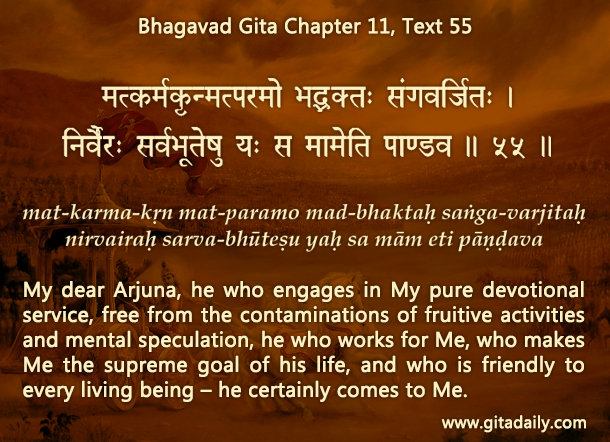Anger often makes us speak and do things that hurt others, things that we regret later. Aptly, the Bhagavad-gita (16.21) deems anger one of the gates to hell.
Still, not all feelings of anger are necessarily bad. When we feel angry about something, it shows that we care – and care strongly. If we didn’t care, we wouldn’t have felt any emotion about that thing, not even anger. Thus, anger can express love.
But anger is often not the best way to express love. Being driven by anger, we may speak or do things that hurt the cause we care about. So, rationalizing our anger as an expression of our love can be counterproductive. Rather, we need to channel the energy of our love for determinedly controlling our anger. To control anger is not to suppress it, but to express it appropriately for making things better, not worse.
Sometimes when people behave outrageously and express no regret, we may feel that we have a right to be angry. If anyone had a right to such justified anger, the Pandavas did. The Kauravas’ had committed outrageous atrocities against them, and had remained brazen and deceptive throughout. Thus, they had left the Pandavas with no alternative except assertive martial action to regain their rights. Accordingly, the Gita urges Arjuna to fight and reveals that the Kauravas were destined to be destroyed. Yet despite this background and prophecy, that very chapter concludes (11.55) with a call to Arjuna to do his work – in this case, fighting – without animosity towards anyone, in a mood of devotion to Krishna.
The underlying message is universal: even when we have reason to be angry, we need to act not in anger but with the aspiration to best serve Krishna and moderate our expression of anger accordingly.
To know more about this verse, please click on the image
Explanation of article:


Pranaama. His Holiness Dalai Lama who appreciates my socially responsible work believes that Spiritual Anger is critical for Spiritual growth. But one must not express it rudely. He guided me on this personally when I mentioned that I had got angry against a Cabinet Minister BTW Prabhuji the issue was trafficking of women.